Pingdemic: Bar staff being told to delete NHS Covid-19 app
- Published

Rachael worked in a bar until graduating two weeks ago
More than 600,000 people using the NHS Covid-19 app in England and Wales were sent self-isolation alerts in the week between 8 and 15 July.
And about one in five hospitality workers are isolating.
It's caused staff shortages in lots of industries, including the hospitality sector which employs over three million people, external.
With whole teams being "pinged" at once, pubs, restaurants and hotels have been forced to temporarily shut, pushing some hospitality staff to delete the app.
'I've lost so much money'
Rachael tells Radio 1 Newsbeat isolating has cost her between £300 and £400 in missed shifts.
The 22-year-old who lives in Brighton and, until two weeks ago, worked in a bar explains: "I've been pinged twice while on my way to shifts.
"Both times I've tested negative on lateral flows and PCRs. I don't agree with not self-isolating, but the app gives you no context on who you've been near."
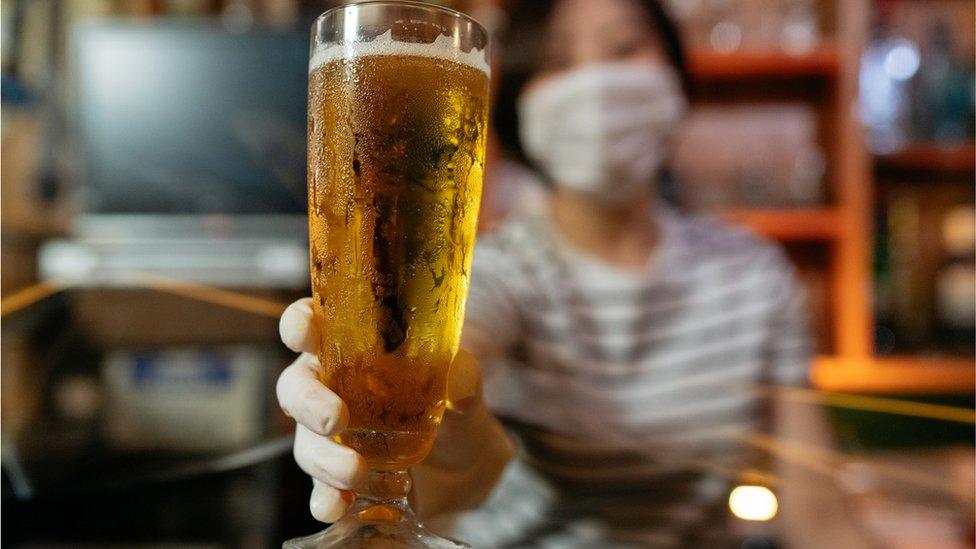
Although isolating after being pinged isn't a legal requirement, the government urges people to do so.
In a recent interview, Business Secretary Kwasi Kwarteng told the BBC: "If you are pinged, you should self-isolate. I know it poses challenges but the rules are clear and I think they should be followed."
Rachael says a big factor in deleting the app was a lack of sick pay. "If I'm off, I get no income or support. If I did I would self-isolate."
Frustrated by a lack of earnings, she spoke to her manager about ending one of her isolations early.
"I asked my boss, 'If I got a test today, and it's negative, can I work?'
"He said no because the head office was being strict, but in our staff WhatsApp chat he later messaged to say people should delete the app because they're losing so many staff."
Rachael agrees with her boss and wanted to delete the app.
'I'm not willing to put people at risk'
Ralph (not his real name) can relate to this pressure. He's 27, works in a bar in London and has been told to delete the app, although he's decided to go against his manager.
"Having the app is the right thing to do and whether or not I've got a manager telling me to have it, I'm going to keep it," he tells Radio 1 Newsbeat.
Ralph has also been told to ignore being pinged, even after doing a shift with a colleague who tested positive.
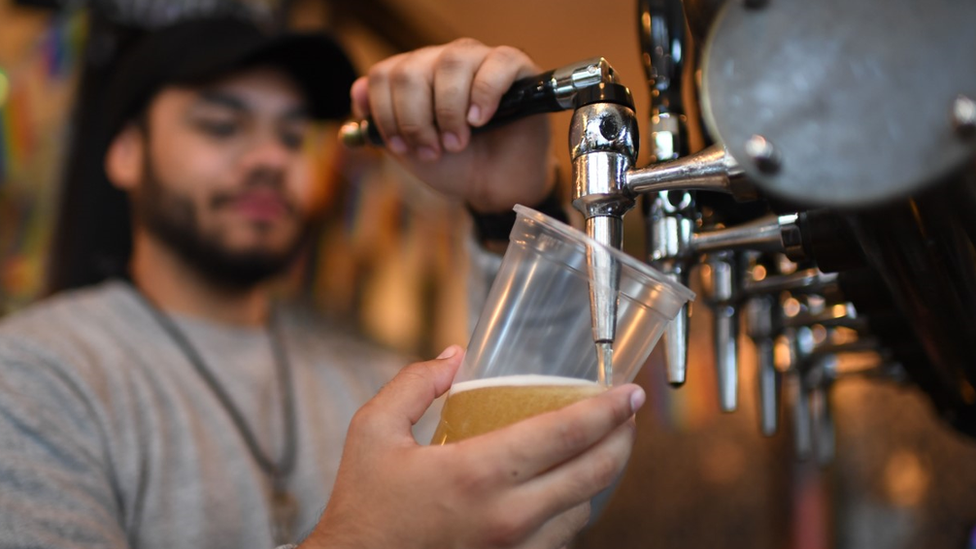
"The app said I needed to isolate for 8 days, so I told my manager straightaway. He said to come in, take one lateral flow test and if that's negative to continue working."
Ralph describes the situation as "worrying", and although he understands why his manager needs him in, decided to "put his foot down."
"The worst case scenario is I'm positive, I go into work and spread it to staff and customers and that effectively puts people's lives at risk and that's something I'm not comfortable doing."
Like Rachael, Ralph isn't paid if he doesn't go to work. On the whole he says he feels safe when he's there, but questions some of the bar's policies.
"My manager asks us all to wear 'exempt' badges because he doesn't want us wearing masks. I understand he wants to create a relaxed atmosphere for customers, but we're still in a pandemic."
'Ethically and morally it doesn't feel right'
For Lucy, a 24-year-old bar supervisor in London, her workplace does feel safe. They follow social distancing rules, and all customers check into the venue.
However like Ralph, she's been told to delete her app. She says "keeping it wasn't an option".
"There wasn't a conversation about it, which from a safety point, I don't really agree with. I felt like my safety was compromised."
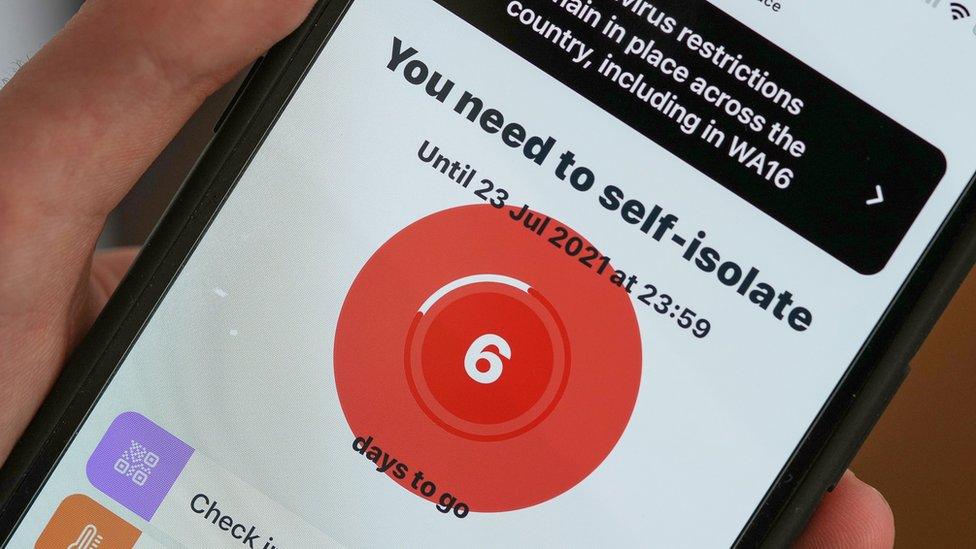
Two weeks ago Lucy and three other members of staff contracted Covid. Their manager asked them not to enter the positive tests into the NHS app as he worried it could shut the bar down.
"I felt a bit awkward. It's not about me and my workplace, it's also about the places I've been outside of work.
"I could be putting other people at risk. Ethically and morally it didn't sit with me very well."
What should you do?
So if like Lucy and Ralph you want to keep the app, what are your rights in the workplace?
Beth Hale is a lawyer who specialises in employment. She tells Radio 1 Newsbeat, it all comes down to judgement.
She explains: "An employee is obliged to follow reasonable instructions.
"A blanket instruction that all staff should delete the app is unlikely to be reasonable."
If you are told to delete the app against your will, Beth suggests "having a rational conversation".
"Part of the problem is the confusion there is between the NHS Test and Trace system and the NHS app. With the app, there is no legal obligation to have it and it does not create a legal obligation to self-isolate. Being contacted by NHS test and trace however does create a legal obligation."


Follow Newsbeat on Instagram, external, Facebook, external, Twitter, external and YouTube, external.
Listen to Newsbeat live at 12:45 and 17:45 weekdays - or listen back here.
- Published22 July 2021
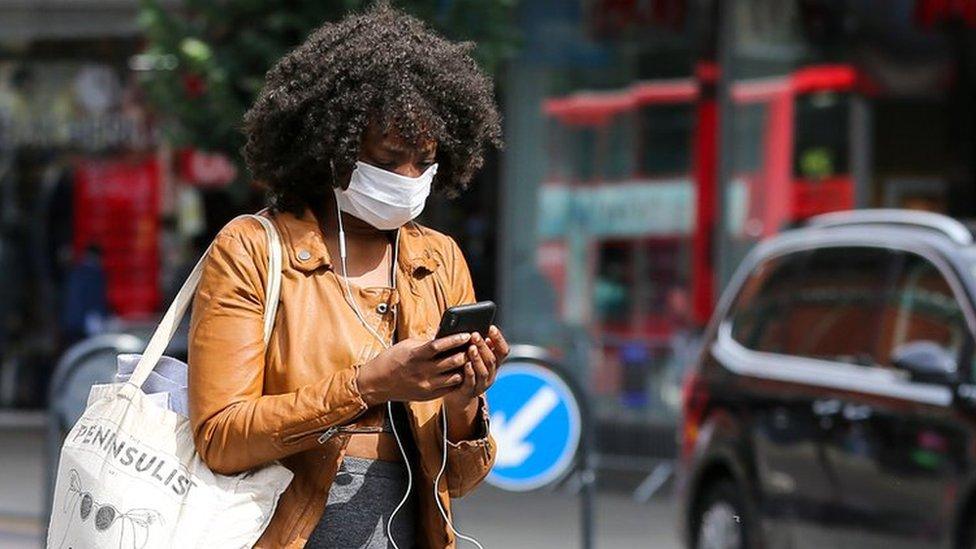
- Published20 December 2023
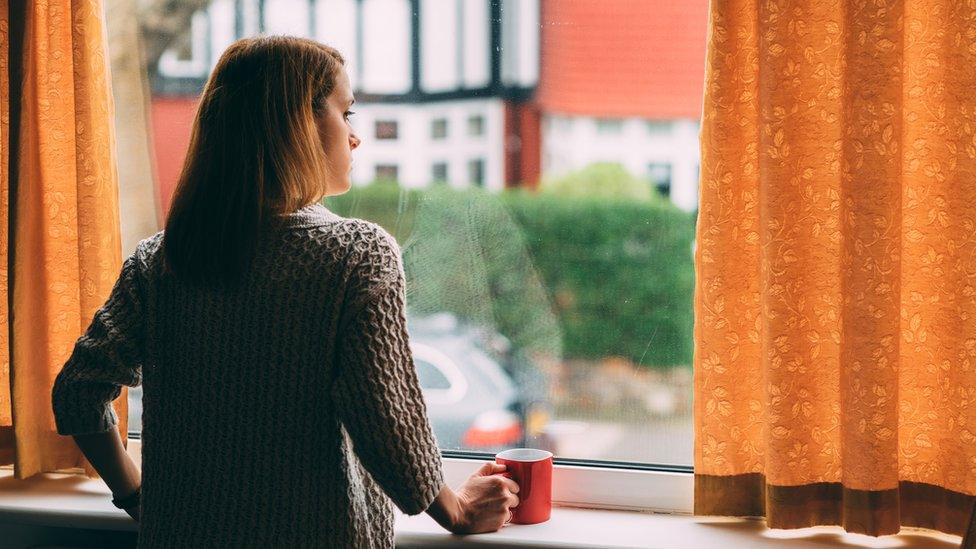
- Published20 July 2021
